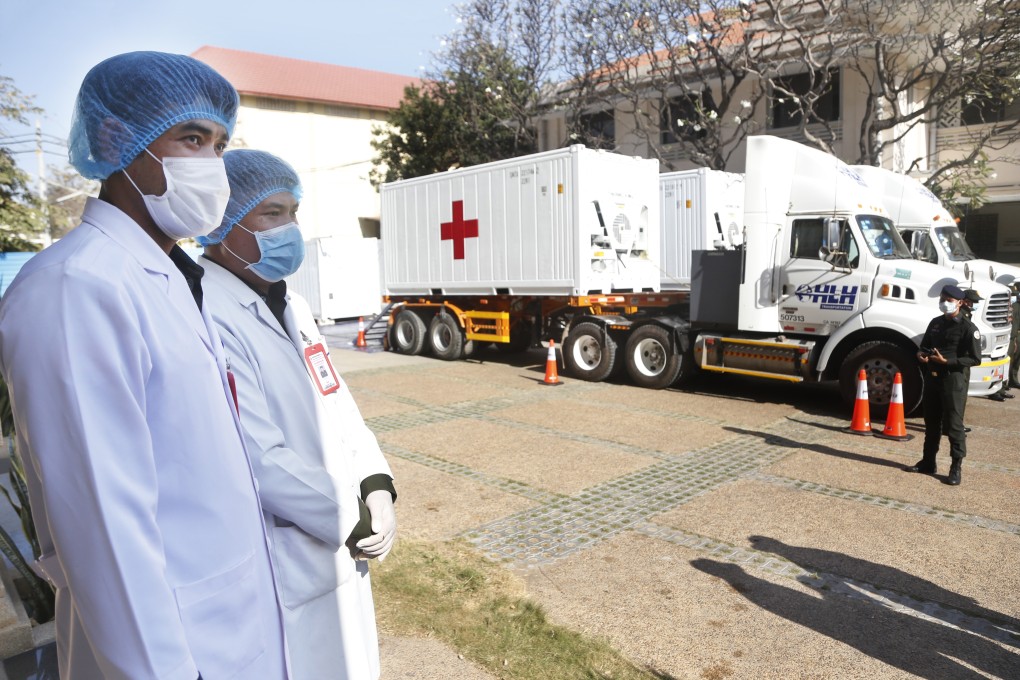Coronavirus: Cambodia becomes latest country to sign up for Chinese vaccines as Brazil looks to buy 20 million more doses
- Cambodian citizens will start receiving jabs from Wednesday with a goal of inoculating 500,000 people by April
- Meanwhile, the governor of Sao Paulo says Brazil is in talks to secure extra doses of another vaccine developed in China

Cambodia will become the latest country to use Chinese Covid-19 vaccines despite persistent doubts over their effectiveness.
On Friday it also emerged that Brazil was in talks to buy another 20 million doses of a vaccine developed by another Chinese company.
There has been scepticism over the effectiveness of the Chinese jabs, including the Sinopharm vaccine that China has donated to Cambodia, because the producers have not made their final trial data public.
On Thursday French President Emmanuel Macron warned that “absolutely no information” had been shared about trials.
“What it means is that in the medium to long run it is almost sure that if this vaccine is not appropriate it will facilitate the emergence of new variants, it will absolutely not fix the situation of these countries,” he told the Atlantic Council think tank.
But a growing number of countries have now given emergency use approval for Chinese vaccines. The Sinopharm vaccine that Cambodia will receive has received approval from about a dozen countries, including Hungary, Pakistan, the United Arab Emirates, Bahrain, Morocco, Serbia, Egypt, Jordan and Iraq.